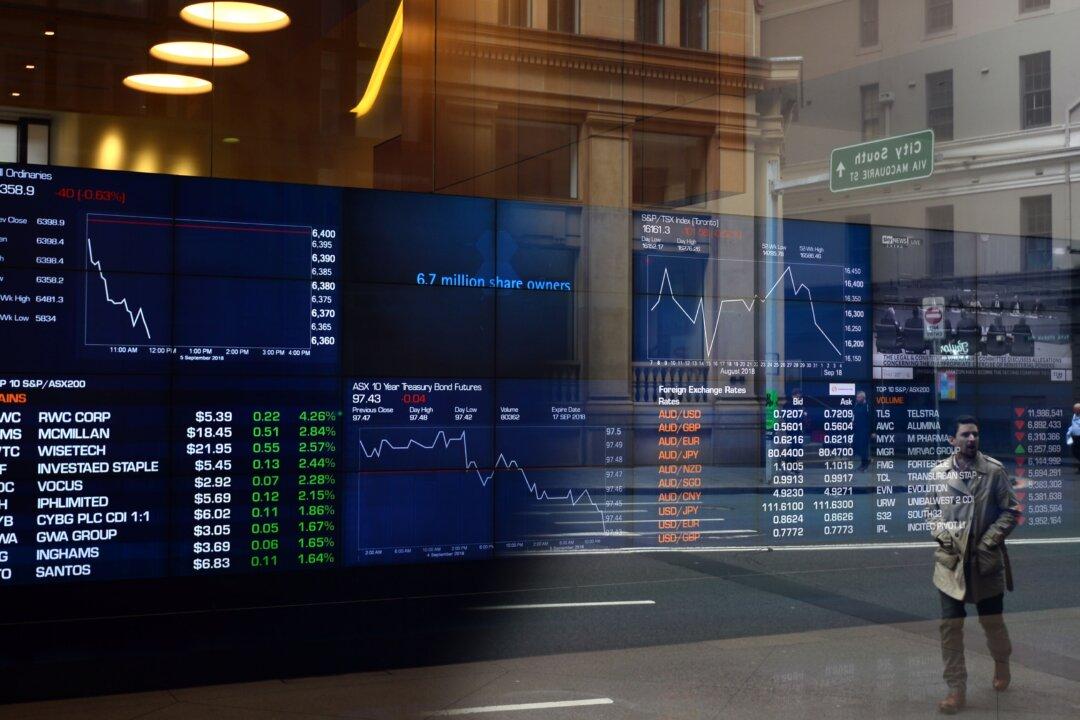Shares took the second sharpest nosedive of the year on the ASX when higher than expected inflation data intensified fears that the Reserve Bank of Australia would push up interest rates.
The market exacerbated early losses on Jan. 25 after the December quarter data showed the annual inflation rate increased to 3.5 percent.





